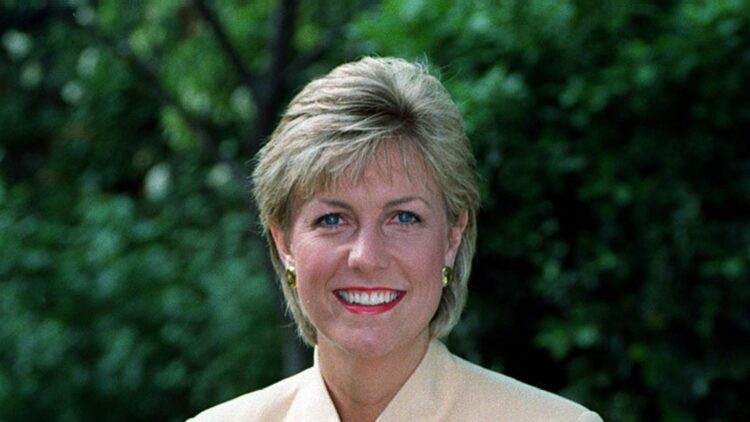By David Young
A new documentary today reveals a catalogue of police failings in one of the most high-profile missing person investigations in modern British history.
Crimewatch presenter Jill Dando was one of the UK’s most famous television stars when she was shot on her doorstep in Fulham, London, on April 26, 1999.
The killing went down as one of the most notorious murders of a television presenter in British history.
Barry George was arrested on suspicion of murder a year later and was convicted and imprisoned for eight years before being acquitted and released after a retrial.
The latest documentary, presented by former detective Mark Williams-Thomas and released at 12.30pm today, uncovers a series of police failings as it attempts to answer ‘who killed Jill Dando?’.
The documentary-makers have been given exclusive access to the original police files containing thousands of documents, intelligence reports, as well as photographs and footage.
The 15-minute film also includes an interview with Barry George following his release from prison.
Mark Williams-Thomas, a retired detective best known for exposing Jimmy Savile as a paedophile in ITV’s The Other Side of Jimmy Savile.
NQI documentaries feature insight from journalists who covered the stories first-hand. Subscribe to the NQI’s YouTube channel to stay up to date with the new documentaries presented by Mr Williams-Thomas and Jody Doherty-Cove
During the murder investigation the police turned their attention to Barry George, who lived about half a mile from Dando’s house.
He had a history of stalking women, sexual offences and other antisocial and attention seeking behaviour.
George was put under surveillance, arrested and charged with her murder on May 28, 1999.
He was tried at the Old Bailey, convicted, and on July 2, 2001, was sentenced to life imprisonment.
Concern about this conviction was widespread on the basis that the case against George appeared thin.
Two appeals were unsuccessful, but after discredited forensics evidence was excluded from the prosecution’s case, George’s third appeal succeeded in November 2007.
The original conviction was quashed and a second trial lasting eight weeks ended in George’s acquittal on August 1, 2008.
No one else has been charged with Jill’s murder.
Jill’s funeral took place on May 21, 1999, at Clarence Park Baptist Church in Weston-super-Mare.
She was buried next to her mother in the town’s Ebdon Road Cemetery.
A memorial garden designed and built by the BBC’s Ground Force team was constructed in the town’s Grove Park and was opened on August 2, 2000
Several theories around who killed Jill Dando have failed to yield any definitive answers. One of the theories suggests she was the victim of a Serbian hitman, who killed the broadcaster in revenge for the West’s aiding of Kosovo in its war with Serbia.
Less than three weeks before she was killed, Dando fronted a BBC Kosovo appeal for those fleeing ethnic cleansing in the Balkans. The appeal raised more than £1m in 24 hours.
The method of Dando’s murder gave this theory credibility, as the execution-style killing by an assailant able to slip away unnoticed suggested the work of a professional. The prosecution in the 2001 trial dismissed the theory.




